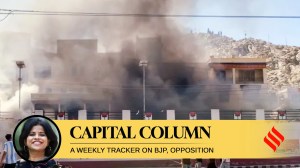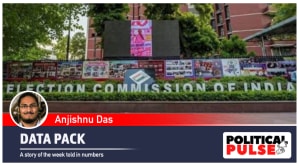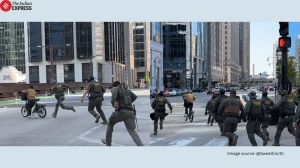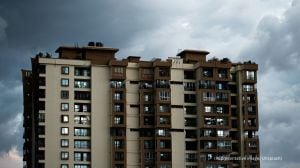President Clinton’s promise marks a major shift towards India
NEW DELHI, MARCH 21: President Clinton's pledge to warn the Pakistani leadership about the futility of terrorism as a state policy and his...

NEW DELHI, MARCH 21: President Clinton’s pledge to warn the Pakistani leadership about the futility of terrorism as a state policy and his affirmation of India’s position that it cannot conduct a dialogue in an atmosphere of violence were the most tangible indicators of the changing dynamic between New Delhi and Washington, a shift that was amplified in a historic “vision” document issued today.
A brief four-question media interaction involving President Clinton and Prime Minister Vajpayee was the scene of the most significant shift in US perception of the troubling events on the subcontinent. Against the sombre backdrop of the brutal massacre in Kashmir, Prime Minister Vajpayee spoke ruefully about the “deliberate design” to foment trouble through killing and mass murders to sabotage any attempt to bring normalcy in the region. “This policy is not going to pay. And I hope this question will be discussed by the President in Islamabad,” Vajpayee added.
Clinton replied: “The Prime Minister said he hoped I would say that in Islamabad, and I will.”
Repeatedly through the day, Clinton reiterated his administration’s position about the inviolability of the Line of Control. Each time the remarks appeared to be directed at Pakistan. “After all, we are not the ones who violated the line of control,” India’s principle secretary Brajesh Mishra pointedly said later.
High ideals and noble sentiments punctuated the historic engagement on a day when the two countries celebrated common principles and pledged “new beginnings.” “Hype” is the word that comes first to mind after a daylong overdose of eulogies, but seldom — if ever — has the United States signed up a document that celebrates such bilateral conviviality. So bonhomous was the spirit between the two sides that the Indian side must have pinched itself to believe the wide berth President Clinton gave New Delhi on the contentious issue of nuclear non-proliferation.
The fundamental difference of perception over India’s need for nuclear weapons remained, but the US President made two significant concessions: He agreed India had “real security concerns”. And on the Test Ban Treaty, he hoped that “the democratic process will produce a signing and ratification” treaty on the same lines of what he hoped would happen in the US. In effect, that was a clear sign that Washington could not armtwist New Delhi into signing the treaty ahead of a domestic consensus the Vajpayee government has promised to develop.
While the issues of terrorism and non-proliferation hogged the limelight, capitals across the world — especially Beijing — will be reading what appears to be a landmark document in modern bilateral relations anywhere in the world. So upbeat and congenial is the document titled “India-US Relations: A vision for the 21st Century,” that it could easily cause heartburn in London and Ottawa, Washington’s closest allies.
Central to the vision is the setting up of an institutional dialogue that will see the most prolific and frequent exchange of views the two sides — or any two sides — could conceivably have. This will include “regular” bilateral summits between the President and the Prime Minister of the two countries respectively (in addition to “frequent contact” on phone and through letters); an annual foreign policy dialogue between the US Secretary of State and the Indian External Affairs Minister; a continuation of the Jaswant-Talbott kind of security dialogue on a semi-annual basis; foreign office consultations that will include a dialogue on Asian Security; and increased engagements on economic matters, commerce, trade, and science and technology.
It is as if the two sides are rushing to make up for years of neglect and one remark by President captured the sentiment: “We have neglected this relationship for more than two decades. It is too important to ever fall into disrepair again.”
Vajpayee visit
Prime Minister Vajpayee will visit Washington at the invitation of President Clinton this year before the latter demits office. The visit could take place around the UN General Assembly session in September, or even earlier. As part of the promised increase in high-level contacts between the two countries, Clinton invited Vajpayee to Washington. “I am delighted to accept,” Vajpayee said.





- 01
- 02
- 03
- 04
- 05

























